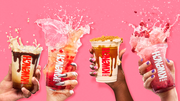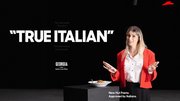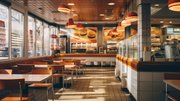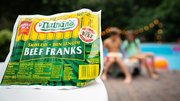News
Custom meats give QSRs control
January 24, 2006
Ordering raw meat is a thing of the past for quick-service restaurant (QSR) chains. It's time to get with the program and purchase custom-formulation meats. These days, you don't have to be as big as Carl's Jr. or McDonald's to attract a meat manufacturer. You simply need a few stores and a willingness to let someone else whip up the steak for your famous fajitas.
With QSR chains growing at a rapid pace, and owners and founders not able to manage every restaurant, custom formulations can positively contribute to your bottom line and production.
Burke Corp., a meat manufacturer that's specialized in custom meats since the 1970s, particularly enjoys helping the smaller business with fewer resources. "We found that getting in on the ground floor with these smaller chains is smart business, period," said Liz Hertz, marketing manager.
 This story and all the great free content on QSRWeb is supported by:  |
Keeping secrets
The secrecy surrounding which manufacturer makes what meat for whom is closely guarded. Most manufacturers sign confidentiality agreements. "The recipes are kept under lock and key," Hertz said. "Not only that but we will also brand each package with your label and logo so nothing Burke Corp.-related can be associated with your recipe."
As your chain grows, and you spend less time at each store, you want to ensure staff members don't steal your most precious recipes. One QSR chain owner said he feared a worker would steal the company recipe and start his own restaurant. To prevent that, he has his meat custom-produced.
Consistency
But consistency may top the reasons growing chains turn to manufacturers. Keith Fraser, director of purchasing for the Orlando, Fla.-based Miller's Ale House, said although they pride themselves on doing as much cooking in house as possible, they take advantage of their manufacturer's capabilities whenever possible.
"There's far less likelihood that a manufacturer will make a mistake in a large batch production than 36 individuals units will," he said.
There's no rule of thumb, but a custom formulation can sometimes cost more than making it on premises. Value is another matter. "A proprietary product could cost two to two-and-a-half times what scratch does," said Robert Danhi, a Los Angeles-based consultant and adjunct faculty member at the Culinary Institute of AmericaDanhi. "But that's not the issue. Operators need to look not just at the ingredients and labor costs, but also at things like consistency, control, brand message and so on — which you can't really put a price on."
 ChatGPT
ChatGPT Grok
Grok Perplexity
Perplexity Claude
Claude









